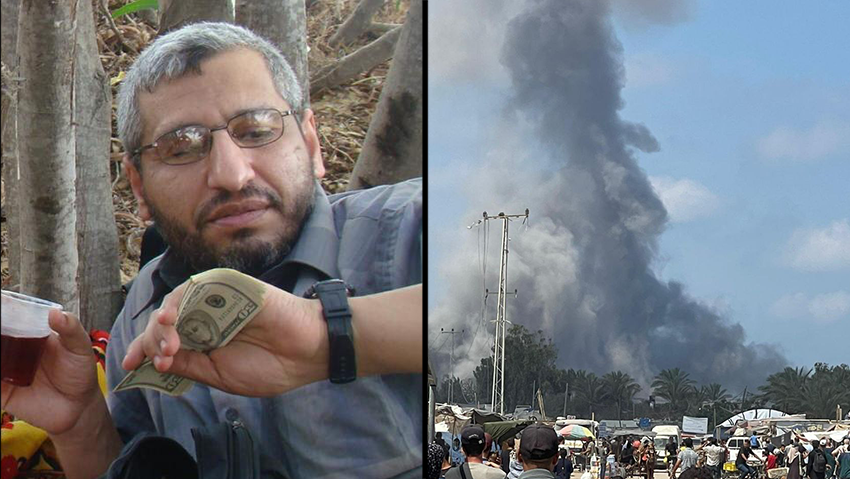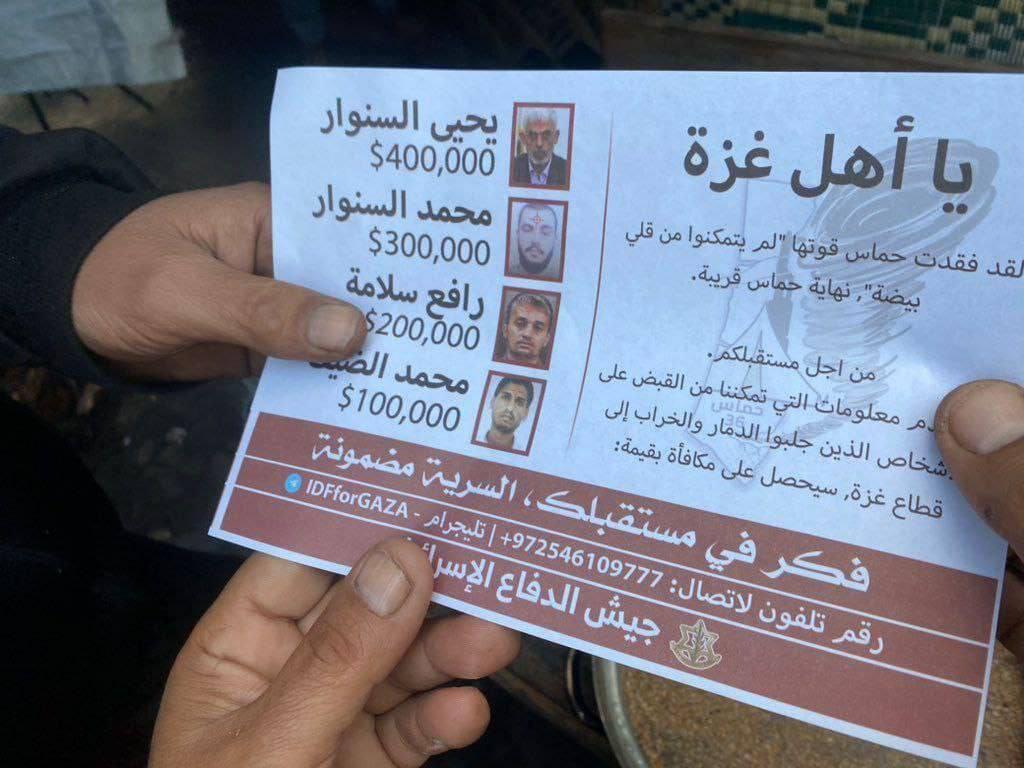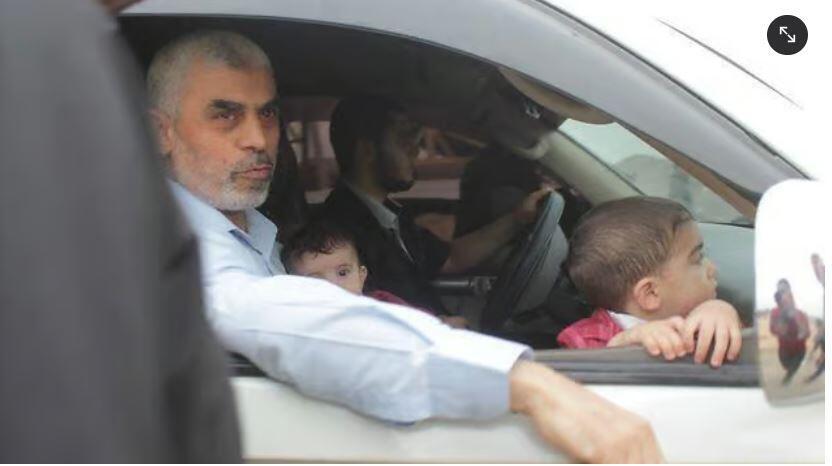Getting your Trinity Audio player ready...
While Israel remains uncertain about the elimination of Hamas' military wing leader, Mohammed Deif, a week after the dramatic assassination attempt in Khan Younis that took down his deputy Rafa Salama, sources in Gaza claim the terrorist organization knows which of its members are collaborating with Israel, leaking sensitive information about the locations of their military, leadership, and police forces.
According to these sources, these individuals are "on Israel's radar," and the terrorist organization is deeply investigating breaches in its intelligence mechanism. On Friday, IDF Spokesperson Rear Admiral Daniel Hagari stated in his briefing that "the signs are increasing" that Deif has indeed been eliminated, but this has not been officially confirmed. Earlier this week, the IDF updated that Salama, the Khan Younis Brigade commander who was with Deif in the same building, had been eliminated.
Salama joins other senior Hamas figures, including prominent commanders and field operatives, who have been eliminated during the war: Deif's deputy Marwan Issa, Central Gaza Brigade commander Ayman Nofal, Northern Brigade commander Ahmed Randor, Rocket Unit commander Ayman Siam, and two members of Hamas's political bureau in Gaza - Zakaria Abu Moumar and Jawad Abu Shamaleh, among others.
Sources in Gaza told the Arabic-language newspaper Asharq Al-Awsat, published in London, that "one of Israel's sources is the human factor" – which greatly aids in identifying and tracking targets and helps determine the locations and timings of strikes. "Israel has been using field agents for decades and has built an entire army," said these sources, who claim to have provided Israel with information that helped locate wanted individuals who were eliminated.
They also told the newspaper that the human factor is one of the most important elements in the espionage process for any intelligence agency, stressing that over the years, terrorist organizations and government security services in Gaza have arrested hundreds of people linked to Israeli security services, providing varying valuable information to their employers.
These sources added that Israel sometimes managed to recruit people within Palestinian organizations and within the target’s social circle, whether organizationally, family-wise, or through social connections, such as relatives and neighbors. They also disclosed that second and third-tier leaders, as well as terrorist operatives, have cooperated with Israel, providing information to identify the locations of leaders, weapon production sites, rockets - and even tunnels.
The newspaper noted that the Palestinian Authority and armed factions conducted extensive investigations in the West Bank and Gaza in recent years, revealing that in every assassination operation in the West Bank or Gaza, Palestinian agents were involved in one way or another, and some even participated in the executions. This is evidenced by several executions carried out in the past two years, especially in Jenin and Nablus, against the backdrop of numerous successful eliminations of terrorists and wanted individuals by Israel.
In a publication by Asharq Al-Awsat, the story of a terrorist operative recruited by Israeli intelligence was presented. He was given sneakers that later turned out to contain electronic espionage chips scanning the tunnels he entered in various areas in the northern Gaza Strip. Another individual involved in tunnel digging helped Israel locate these tunnels, and after an investigation in Gaza, it was revealed that he was in contact with his handlers via the Internet. He was arrested but managed to escape Gaza.
In another case, security officials confirmed to the newspaper the arrest in 2015 of a girl who partially assisted in an attempt to assassinate Mohammed Deif inside a building in the Sheikh Radwan neighborhood of Gaza City. The attempt then led to the death of his wife and two of his children, but he survived.
The officials explained to the newspaper that intelligence officers gave the girl approximate information about Deif and his photo, and after recruiting her earlier, asked her to approach the residence where his wife was and find out if there was any man inside the apartment. When she signaled them that she heard a man's voice inside the apartment, Israel bombed the apartment, but Deif survived.
Another source told Asharq Al-Awsat that previous investigations revealed the recruitment of at least 30 people who traveled through the Erez Crossing to the West Bank or Israel and were asked to gather information on Hamas in exchange for issuing permits.
Despite the high likelihood that Deif did not survive the assassination and is indeed dead, Hamas is careful to emphasize that this is not an "achievement." "We operate under the principle that there are possible breaches at any moment, and we take complex security measures and approaches," Hamas officials say. "There is no single place above or below ground where a leader stays for a long time."
On the day Deif was supposedly eliminated, the Saudi network Al Hadath reported Hamas is investigating a "major internal breach" behind the strike. Sources cited in the report said that Deif and his right-hand man Salama, who both survived previous Israeli assassination attempts, moved more than once in recent weeks along with other senior officials from place to place to prevent Israeli tracking.
According to interpretations provided then by Al Hadath regarding the "breach" being investigated, it involved collaborators who followed senior Hamas figures and knew exactly where they were. "Al-Hadath" also reported that Israel detained "second and third-tier" Hamas officials and obtained information from them. "Israel obtained information from sources it interrogated about the movements of Hamas leaders between Rafah and Gaza City," the Saudi report stated.






